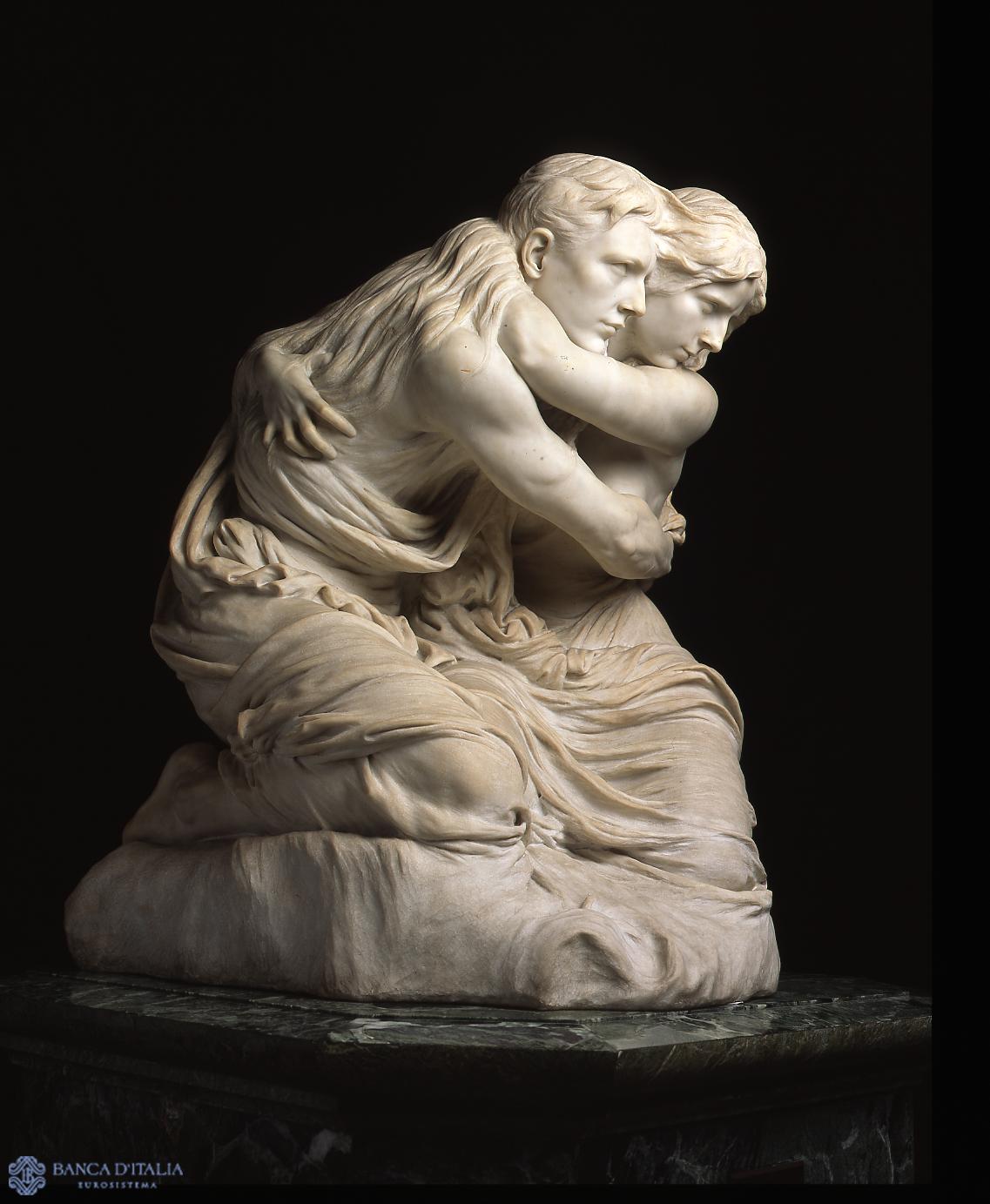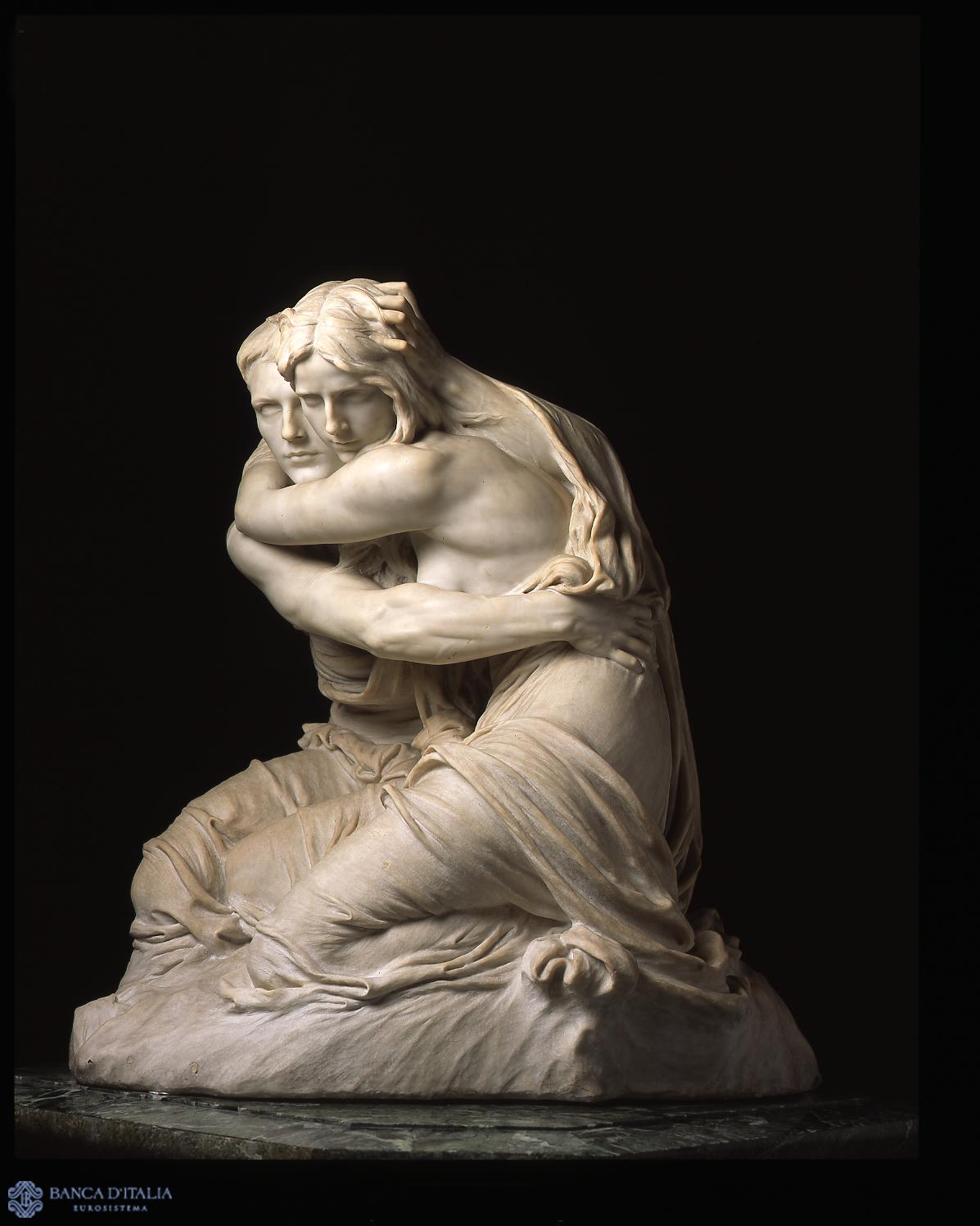Canonica, who was known for his large-scale sculptures of civil and religious subjects, was greatly admired by the Turin aristocracy. The acquisition of this piece — the large marble group titled L'abisso (‘The Abyss’) —can therefore be attributed to Gualino’s ‘old-fashioned taste’, as he himself described it, before his meeting with Lionello Venturi.
Pietro Canonica was a very talented sculptor and he achieved great success, earning the title of ‘Senator’. He learnt his art from the example of 17th-century religious sculpture, inspired by the work of Guido Reni and contemporary religious painters. He initially became well-known for his large sculptures of holy subjects. Canonica deliberately ignored contemporary experimentation and he never took part in the ‘renewal of Verism’, presenting himself instead as the personification of the anti-modern sculptor. Indeed, he earned several hostile reactions not only from the ‘modernists’ but also from the generation of more ‘moderate’ artists, such as Libero Andreotti and Attilio Selva.
This group, which Canonica sculpted in the early 1900s, is both elegant and of slightly Baroque influence, evident in the heavily draped fabric enveloping the bodies of the two lovers locked in embrace. They might be Paolo and Francesca, the perfect lovers, condemned to the eternal fires of hell. Despair is not apparent in the expression of either, their faces instead transfigured by passion. There is no agony in their embrace: her face as she looks down into the abyss rests trustingly against her lover, who holds her tenderly in his arms.
Pietro Canonica, L'abisso
L'abisso
Sculpture
20th century AD
Figurative

Artist
Date
1907 - 1909
Material and technique
White marble
Measurements
115 x 96 x 95 cm
Compiler
Augusta Monferini


